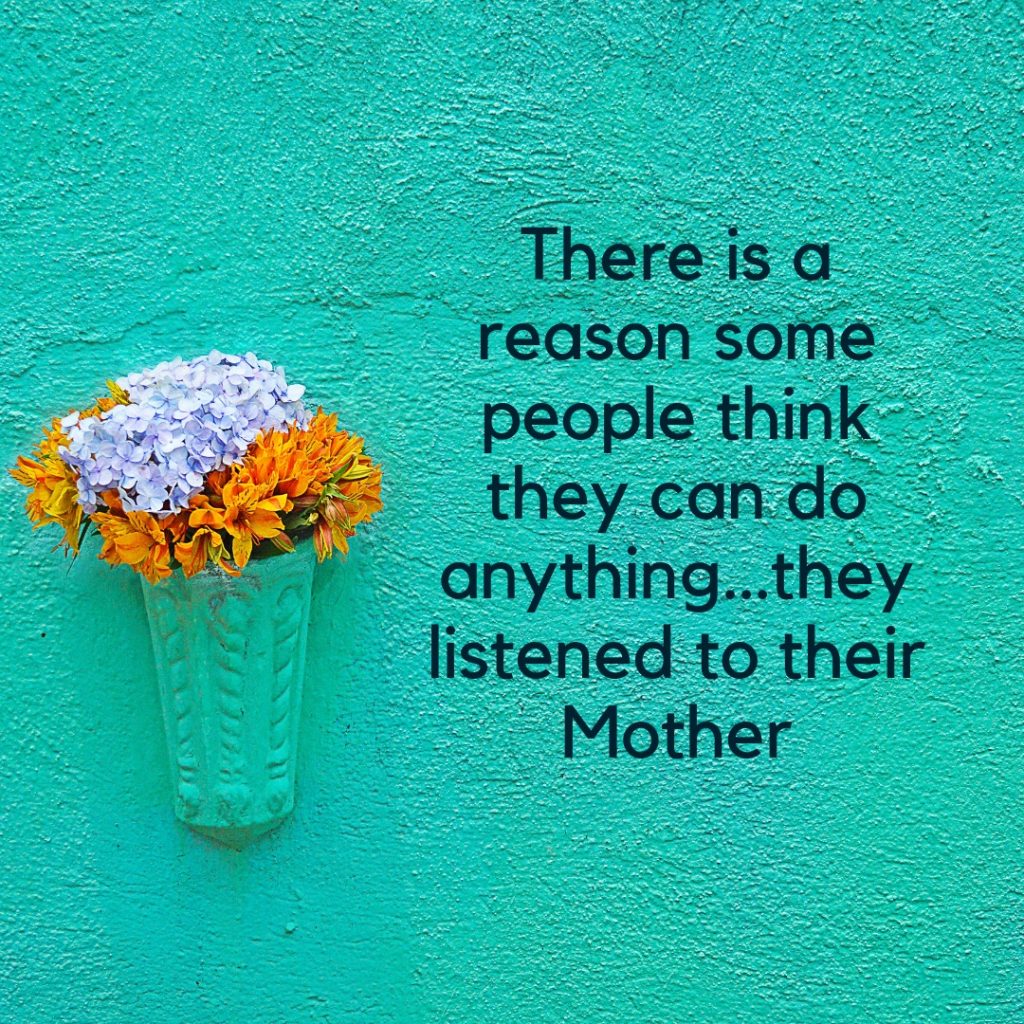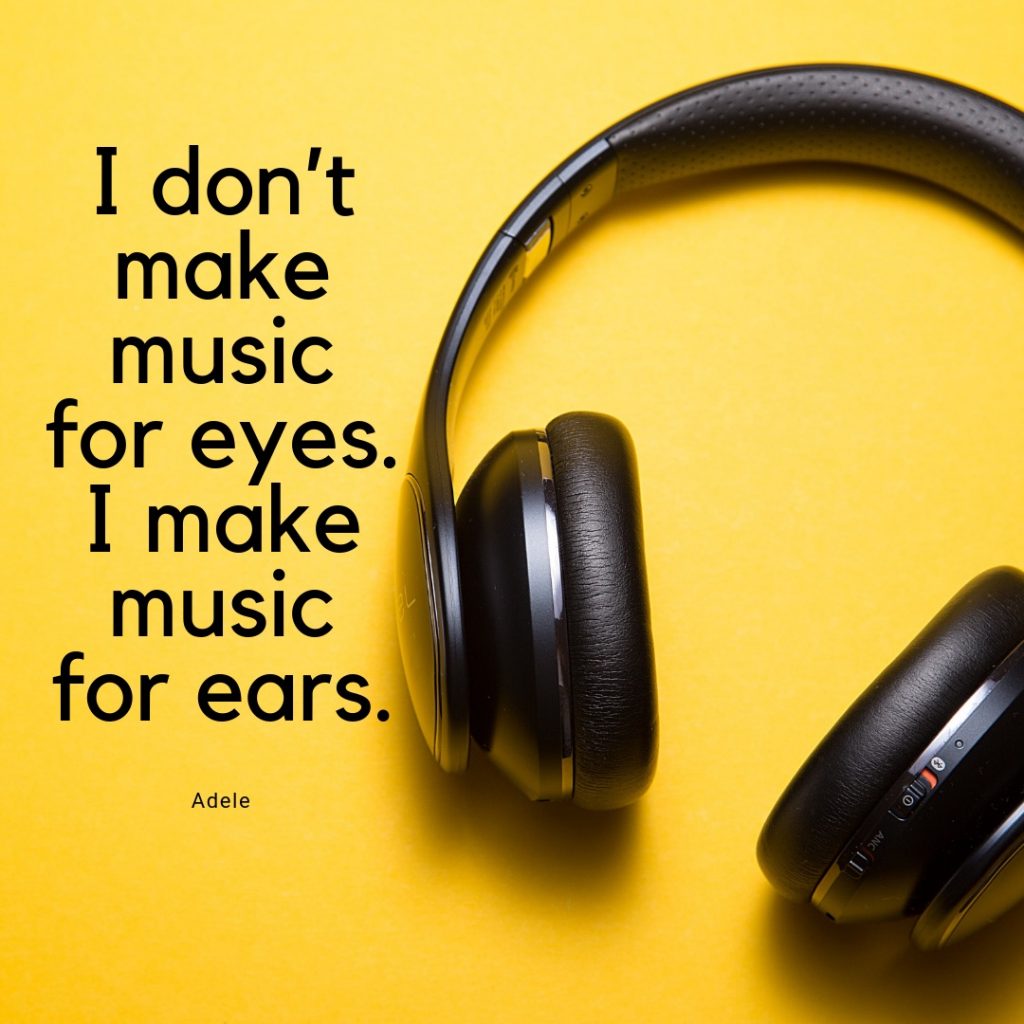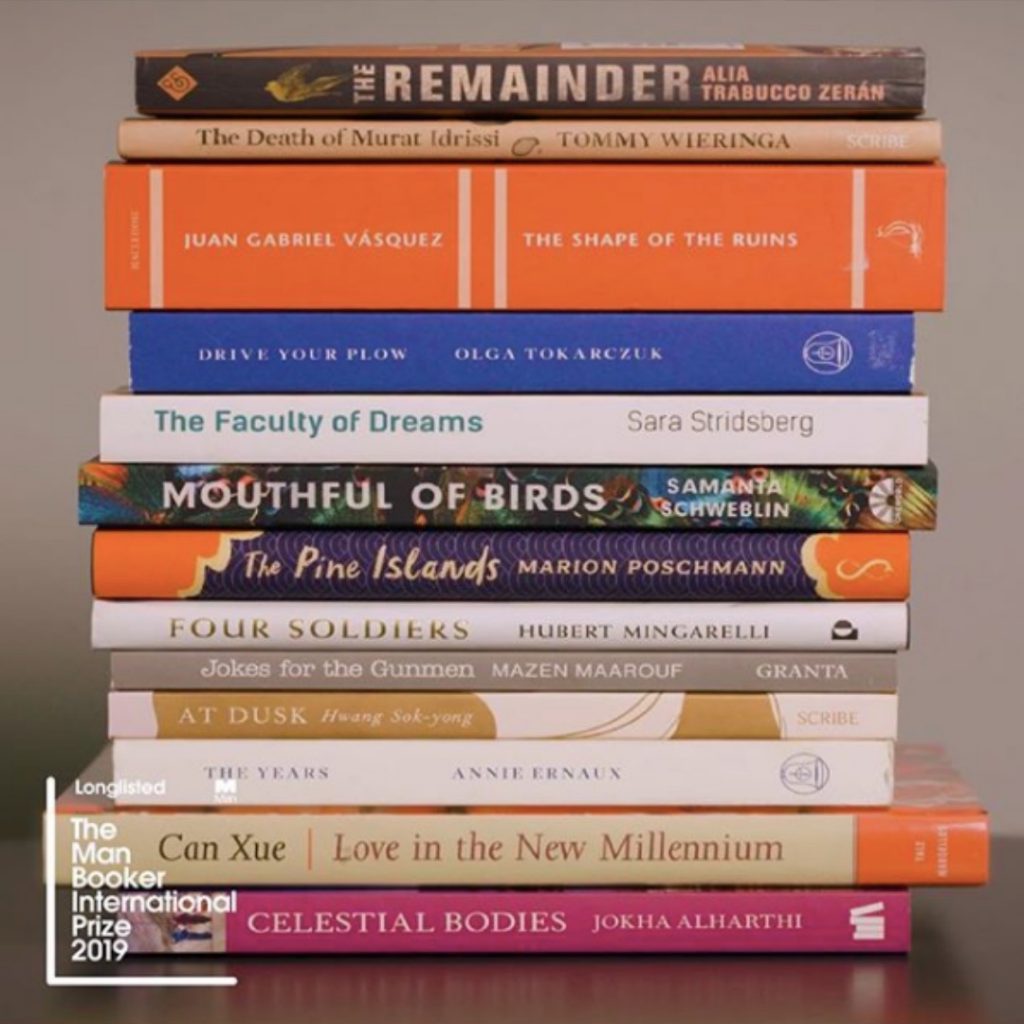Mother’s Day is just around the corner and this week we are sharing our top picks of amazing coffee table books to gift her. But today, we have this little gem for you.

Mother’s Day is just around the corner and this week we are sharing our top picks of amazing coffee table books to gift her. But today, we have this little gem for you.


Music has the ability to change a person’s mood in seconds, making a foot start tapping to a beat or evoking memories of days gone by. Everyone has a favourite song, but few know the stories behind them or what was going on in the artist’s life when they were written and recorded.
Today we are sharing some of the best new books on the market that uncover amazing stories behind the music we love. Brace yourself, it’s a fascinating ride.
Daisy Jones and The Six by Taylor Jenkins Reid
Everyone knows Daisy Jones & The Six, but nobody knows the reason behind their split at the absolute height of their popularity…until now.
Daisy is a girl coming of age in L.A. in the late sixties, sneaking into clubs on the Sunset Strip, sleeping with rock stars, and dreaming of singing at the Whisky a Go Go. The sex and drugs are thrilling, but it’s the rock ‘n’ roll she loves most. By the time she’s twenty, her voice is getting noticed, and she has the kind of heedless beauty that makes people do crazy things. Also getting noticed is The Six, a band led by the brooding Billy Dunne. On the eve of their first tour, his girlfriend Camila finds out she’s pregnant, and with the pressure of impending fatherhood and fame, Billy goes a little wild on the road. Daisy and Billy cross paths when a producer realises that the key to supercharged success is to put the two together. What happens next will become the stuff of legend.
The making of that legend is chronicled in this riveting and unforgettable novel, written as an oral history of one of the biggest bands of the seventies. Taylor Jenkins Reid is a talented writer who takes her work to a new level with Daisy Jones & The Six, brilliantly capturing a place and time in an utterly distinctive voice.
The Book of Daniel by Jeff Apter
When Silverchair shuddered to a halt in 2011, there was no swan song, no farewell tour, just a brief statement and then they were gone – after more than fifteen years of brilliant music, five hit albums, legions of fans, millions of record sales, scores of awards and the odd controversy. Three teenagers from Newcastle had taken the world by storm within the time it typically takes most bands to record their first single. Over their stratospheric career, Daniel Johns developed into a performer and songwriter with few peers in modern music. After the end of his marriage to Natalie Imbruglia and the break-up of his band, he became the focus of sordid headlines and whispers of wayward behaviour. People feared what might happen next. But at the same time a new Daniel Johns emerged. His debut solo album, Talk, appeared to rapturous reviews in 2015 and raced to the top of the Australian charts, and then 2018 saw the advent of DREAMS, his long-awaited collaboration with Luke Steele. This was a vastly different Daniel Johns to the grungy, guitar-blazing teen of the 1990s. His new sound and image were sophisticated, brilliant and sexy as hell. It was a remarkable creative makeover, perhaps the most ambitious ever undertaken by an Australian rockstar. Former rockstar. The Book of Daniel documents how the reclusive Johns also battled many personal demons, including life-threatening anorexia and crippling reactive arthritis.
Drawing on more than fifteen years of documenting the life and times of Daniel Johns, author Jeff Apter has brought his story to life, revealing the struggles and triumphs of one of Australia’s most distinctive and dazzling talents. The book also includes a collection of exclusive photographs of Johns by eminent rock photographer Tony Mott.
Unmasked by Andrew Loyd Webber
In Unmasked, internationally acclaimed composer Andrew Lloyd Webber looks back over more than five decades in the spotlight as he recounts his fascinating life and remarkable career. Webber goes back to his origins, illuminating his charming, offbeat family, including his bohemian mother and her pet monkey; his grandmother, who was a founding member of the Christian Communist Party; his zany aunt, who authored the first gay cookbook; and his richly talented younger brother Julian Lloyd Webber.
Lloyd Webber recalls the musicals he created as a child, his school days at Oxford, his artistic influences, including Tim Rice and David Niven, and how he made the decision to leave school to pursue the musical career that would make him a global superstar. Webber illuminates his creative process and takes us behind the scenes of his productions, sharing fascinating details about the shows and the rich cast of characters involved with making them hits.
Full of colourful characters and rich storytelling and illustrated with sixteen pages of colour photos, Unmasked at last reveals the true face of the extraordinary man beneath the storied legend.
Not Dead Yet by Phil Collins
Technically this book wasn’t released in the past year, but it’s been so popular we thought we’d include it for you. This is the roller coaster journey from Phil Collins’ beginnings as a child actor to his domination of the charts both as a solo artist and as part of Genesis. His success is astounding, his music has global reach and his story is legendary. Not Dead Yet is Phil Collins’ candid, witty, unvarnished story of the songs and shows, the hits and pans, his marriages and divorces, the ascents to the top of the charts and into the tabloid headlines. As one of only three musicians to sell over 100 million records both in a group and as a solo artist, Collins breathes rare air, but he has never lost his talent for crafting songs that touch listeners around the globe. This is the story of his epic career to one of the most successful songwriters of the pop music era. A drummer since almost before he could walk, Collins received on-the-job training in the seedy, thrilling bars and clubs of 1960s swinging London before finally landing the drum seat in Genesis. Later he would step into the spotlight on vocals after the departure of Peter Gabriel, and compose the songs that would rocket him to international solo fame with the release of Face Value and ‘In the Air Tonight’. Whether he’s recalling jamming with Eric Clapton and Robert Plant, pulling together a big band fronted by Tony Bennett, playing twice at Live Aid, or writing the Oscar-winning music for Disney’s smash-hit animated film Tarzan, Collins keeps it intimate and his storytelling gift never wavers.
Pink Floyd All The Songs by Jean-Michel Guesdon
Ahem…yep, this one wasn’t released in the past year either…but it’s Pink Floyd so how could we not include it? The newest addition to the best-selling All the Songs series details the unique recording history of Pink Floyd, one of the world’s most commercially successful and influential rock bands. Since 1965, Pink Floyd have been recording sonically experimental and philosophical music, selling more than 250 million records worldwide, including two of the best-selling albums of all time Dark Side of the Moon and The Wall. While much is known about this iconic group, few books provide a comprehensive history of their time in the studio. In Pink Floyd All the Songs, authors Margotin and Guesdon describe the origin of their nearly 200 released songs, details from the recording studio, what instruments were used, and behind-the-scenes stories of the tensions that helped drive the band. Organised chronologically by album, this massive, 544-page hardcover begins with their 1967 debut album The Piper at the Gates of Dawn, the only one recorded under founding member Syd Barrett’s leadership; through the loss of Barrett and the addition of David Gilmour; to Richard Wright leaving the band in 1979 but returning; to Roger Waters leaving in 1985 and the albums recorded since his departure, including their 2014 farewell album, The Endless River, which was downloaded 12 million times on Spotify the week it was released. Packed with more than 500 photos, All the Songs is also filled with stories fans treasure, such as Waters working with engineer Alan Parsons to employ revolutionary recording techniques for The Dark Side of the Moon at Abbey Road Studios in 1972 or producer Bob’s Ezrin’s contribution in refining Water’s original sprawling vision for The Wall.
Chopin’s Piano by Paul Kildea
In November 1838 Frederic Chopin, George Sand and her two children sailed to Majorca to escape the Parisian winter. They settled in an abandoned monastery at Valldemossa in the mountains above Palma, where Chopin finished what would eventually be recognised as one of the great and revolutionary works of musical Romanticism – his 24 Preludes. There was scarcely a decent piano on the island (these were still early days in the evolution of the modern instrument), so Chopin worked on a small pianino made by a local craftsman, which remained in their monastic cell for seventy years after he and Sand had left. This brilliant and unclassifiable book traces the history of Chopin’s 24 Preludes through the instruments on which they were played, the pianists who interpreted them and the traditions they came to represent. Yet it begins and ends with the Majorcan pianino, which during the Second World War assumed an astonishing cultural potency as it became, for the Nazis, a symbol of the man and music they were determined to appropriate as their own. The unexpected hero of the second part of the book is the great keyboard player and musical thinker Wanda Landowska, who rescued the pianino from Valldemossa in 1913, and who would later become one of the most influential musical figures of the twentieth century. Kildea shows how her story – a compelling account based for the first time on her private papers – resonates with Chopin’s, while simultaneously distilling part of the cultural and political history of Europe and the United States in the central decades of the century. Kildea’s beautifully interwoven narratives, part cultural history and part detective story, take us on an unexpected journey through musical Romanticism and allow us to reflect freshly on the changing meaning of music over time.
Enjoy!
Hands down this is one of the toughest questions to answer without constantly changing your mind every two seconds. It seems like the choice for musical bands is endless. Which band is your favourite?

With the extra long weekend winding to a close we thought we’d share one of our fav Adele quotes because this week on the blog we’re sharing the top music books released in the past year.

The Man Booker International Prize short list is announced today, but while we’re waiting why not get to know the long list here:
https://booko.com.au/man-booker-international-prize-2019-long-list

Pic source : themanbookerprize.com
I remember being deliriously happy covering my exercise books in contact paper and getting a new packet of pencils. What did you love about the start of a new school year?

It’s been a scorcher here in Melbourne…thank goodness it’s now the weekend and we can sit back and watch the finals of the Australian Open…with air-conditioning! Happy weekend everyone!

It’s no secret that sport is hugely popular in Australia as it is all over the world. With Summer in full swing here many Australians opt to take on the searing heat, load up cooler bags, grab picnic rugs and head outside to watch sport… any sport. Currently we have the tennis at the Australian Open in full swing, cricket balls being bowled with an impending game against Sri Lanka along with sailing, cycling, rugby, not to mention the Grand Prix coming up on the calendar at the tail end of the season.
With so many options, how on earth does one understand all of the rules, athletes and scandals? To help you with this, we have found a few fabulous titles that can give you an insight into the world of sport so you can hold your own in a conversation around the picnic rug.
First up, let’s look at sport in Australia…
Thoroughly Unhelpful History of Australian Sport by Titus O’Reily
When it comes to sport, Australians are mad. Completely, irrationally insane. It’s the closest thing we have to a culture. From Don Bradman’s singular focus to Steven Bradbury’s heroic not falling over, sport has shaped our sense of self. But how did we get here? Part history, part social commentary and a lot of nonsense, Titus O’Reily, Australia’s least insightful sports writer, explains. Covering Australian Rules, League, Union, soccer, cricket, the Olympics and much more, Titus tackles the big topics, including; how not to cheat the salary cap, the importance of kicking people in the shins, and the many shortcomings of the English. Titus takes you through the characters, the pub meetings, the endless acronyms, the corruption and the alarming number of footballers caught urinating in public. Sport is important – gloriously stupid, but important. To understand Australia you must understand its sporting history. With this guide you sort of, kind of, will.
Fair Go, Sport by Peter FitzSimons
The idea for this book is simple. In the year when Australian cricketers have colluded to nakedly cheat, when attendance rates for all of soccer, rugby union and rugby league have either drifted or roared south, there is an obvious disaffection with modern sport and all the grubbiness that has come with it. Over the last 30 odd years, in articles and books, Peter FitzSimons has tried, among other things, to capture the best, most inspiring, and most heart-warming tales of sports, together with profiling the characters who gave us that magic – or at the very least, engaged us. One thing that became apparent over the years was that there was frequently more reaction for stories about unknowns, and golden greats of yesteryear rather than the modern big bird professionals. Fair Go, Sport is what he regards as the best of such tales. Most, but not all, are Australian based. Ideally, they represent the best of sport, or at least the most alluring, and inspirational, before the ‘serious-ification’ of the whole shebang started to squeeze the life out of it, on so many different levels at once. This is Fitzy at his passionate best. He reminds us that there really are good guys in sport, and that fair play still exists.
One for the Tennis fans…
Fedegraphica by Mark Hodgkinson
He may have just been knocked out of the Australian Open but he’s still our favourite player. Roger Federer’s incredible 2017 comeback which saw him winning Grand Slams in his mid-thirties and reaching new heights most had thought impossible has confirmed his place in the history books as the greatest male tennis player of all time. In this innovative graphic biography, Federer’s tennis is explored like never before: stunning graphics illustrate his serving patterns and superb footwork, detail the spin and speed of his shots, as well as showcase his astonishing records – no man has won more majors, or spent more weeks as the world number one. Drawing on Mark Hodgkinson’s conversations with the Swiss and exclusive interviews with those closest to him, this is the ultimate celebration of the genius of Roger Federer.
For the cricket lovers…
Crossing The Line by Gideon Haigh
`I’m not proud of what’s happened. Y’know, it’s not within the spirit of the game.’ Steve Smith was not to know it at Cape Town on 24 March 2018, but he was addressing his last press conference as captain of the Australian cricket team. By the next morning he would be swept from office by a tsunami of public indignation involving even the prime minister. In a unique admission, Smith confessed to condoning a policy of sandpapering the cricket ball in a Test against South Africa. He, the instigator David Warner, and their agent Cameron Bancroft returned home to disgrace and to lengthy bans. The crisis plunged Australian cricket into a bout of unprecedented soul searching, with Cricket Australia yielding to demands for reviews of the cricket team and of itself to restore confidence in their `culture’.
The Instant Cricket Library: An Imagined Anthology by Dan Eddy
This is bound to make you chuckle. In Dan Liebke’s debut cricket book, The Instant Cricket Library, you’ll find excerpts from a number of remarkable cricket books, none of which you’ve ever read before -because none of them actually existed. There’s I, Pad, Shane Watson’s infamous manifesto arguing that the LBW Law should be abolished. There’s Out of My Ed, in which you’ll discover the truth about the real Ed Cowan. There’s a Banner-Man comic book, a Mitch Marsh play, and much more. They’re all part of the Instant Cricket Library. Imagine a world after a complete societal collapse. A big collapse, like Australia on a raging Chennai turner. In this dystopian future, all of the world’s cricket books have been destroyed. Nothing remains, not even the Steve Waugh autobiographies, which were previously believed to be impervious not just to casual readers, but to all known forms of physical damage. And yet, a hardy group of researchers search desperately for hints of what might have been lost. A title here. A snippet of text there. A tattered cover somewhere else. They gather all the clues they’ve discovered of the lost world of cricketing literature, and enter them into a hastily constructed supercomputer. Finally, with a burst of makeshift artificial intelligence, they extrapolate from those fragments and regenerate a complete cricket library in an instant. This instant cricket library is a marvel of resourcefulness, and a glorious tribute to the ingenuity and determination of humanity, even when faced with the most nightmarish and cricketless of futures. Just because a cricket book never existed doesn’t mean it’s not worth reading.
For the NBA diehards…
Basketball (and Other Things): A Collection of Questions Asked, Answered by Shea Serrano
Who had the greatest dunk of all time? Which version of Michael Jordan was the best Michael Jordan? What is allowed and absolutely not allowed in a game of pickup basketball? Basketball and Other Things takes readers through the most pivotal and ridiculous fan disputes in basketball history, providing arguments and answers to basketball’s greatest questions, explained with the wit and wisdom that is unique to Shea Serrano. Serrano breaks down debates that all NBA fans have considered, from the classics (Which years was Kobe at his best?) to the fantastical (If you could assign different values to different shots throughout basketball history, what would they be and why?). With incredible art from Arturo Torres, this book is a must-have for anyone who has ever stayed up late into the night debating basketball’s greatest moments, what-ifs, stories, and legends.
And one for those that have been inspired by the athletes in your favourite sport…
Atomic Habits by James Clear
So this isn’t technically a sporting book, but it’s message is on point for all athletes, coaches and anyone with a goal.
An atomic habit is defined as a small habit with big results. People say when you want to change your life, you need to think big, swap jobs, move house, change partners. But they’re wrong. World-renowned habits expert James Clear has discovered a completely different way to transform your behaviour. He knows that lasting change comes from the compound effect of hundreds of tiny decisions – doing two push-ups a day, waking up five minutes early, or holding a single short phone call. He calls them atomic habits. In Atomic Habits, Clear delves into cutting-edge psychology to explain why your brain can amplify these small changes into huge consequences. He uncovers a handful of simple life hacks (the forgotten art of Habit Stacking, or the unexpected power of the Two Minute Rule), to show how you, too, turn minuscule shifts in behaviour into life-transforming outcomes. And he reveals a simple four-stage method that will let you build atomic habits into your day-to-day routine, starting now. These nuclear changes will have an explosive effect on your career, your relationships and your life.
Enjoy!
When you look at sporting achievements over the last decades, it seems like humans have gotten faster, better and stronger in nearly every way. But is that really the case?